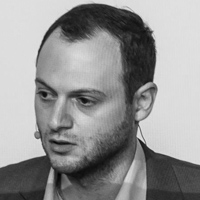DeepSec 2020 Talk: Efficient Post-quantum Digital Signature – Maksim Iavich (DeepSec Scholar 2020)
Active work is being done to create and develop quantum computers. Traditional digital signature systems, which are used in practice, are vulnerable to quantum computers attacks. The security of these systems is based on the problem of factoring large numbers and calculating discrete logarithms. Scientists are working on the development of alternatives to RSA, which are protected from attacks by quantum computer.
One of the alternatives are hash based digital signature schemes. Merkle digital signature scheme is the very promising alternative to the classical digital signature schemes. It must be emphasized, that the scheme has efficiency problems and can not be used in practice. Major improvements of the scheme lead to security vulnerabilities. I will show that Merkle uses hash functions many times. I will offer the improved implementation of the hash function. I will integrate it into Merkle scheme. By means of this function, I will offer the secure and efficient Pseudo Random Number Generator (PRNG). I will offer the optimized approach for the generation of the seed for this PRNG by quantum source of randomness (using the simulation).
During my talk, I will offer the efficient and secure implementation of Merkle signature. This scheme will use the optimized approaches discussed above. The implementation will be significantly speeded up using the threads of CPU. I will analyze the efficiency and the security of the scheme.
We asked Maksim a few more questions about his talk.
Please tell us the top 5 facts about your talk.
- Active release of quantum computers is expected in the near future. Quantum computers will be able to break crypto systems, which are massively used today in practice, such as RSA. An efficient and secure post-quantum crypto system must be created. During my talk I will offer the novel results of our research, which describe the improved version of the hash-based digital signature scheme.
- The classic hash based digital signature schemes have efficiency problems, so the scientists are working on their improvement. One of the improvements is to integrate the pseudo random number generator (PRNGs) into the scheme, but it can cause security issues. During my talk I will explain these problems and will offer a secure version of this improvement.
- I will offer the secure PRNG and the quantum seed for it. I will offer the implementation of this PRNG using simulation techniques.
- I will present the way of integration of the secure and efficient one-way functions into the scheme. I will also present the algorithm of the scheme’s optimization, using CPU parallelism.
- During the talk I will present the implementation of the complete scheme and will analyze its security and efficiency.
How did you come up with it? Was there something like an initial spark that set your mind on creating this talk?
I have been working on the development of post-quantum crypto systems for many years. Every year I have new results and present them at leading cyber security events. After the meeting with the organizers of Deepsec, I decided to give my talk at Deepsec, as it is considered to be a rather solid cyber security event.
Why do you think this is an important topic?
As I have mentioned above the massive release of quantum computers is expected in the near future. Quantum computers will break almost all of the existing crypto systems, so if a secure and efficient post-quantum crypto system is not developed, all the existing systems will be hacked.
Is there something you want everybody to know – some good advice for our readers maybe?
Cryptography is one of the main parts of cyber security. Use only the standard cryptosystems and study how to use them correctly. Do not use invented crypto until it is standardized.
 Maksim Iavich is PH.D. in mathematics and professor of computer science. He is CEO & President of Scientific Cyber Security Association (SCSA). Maksim is an affiliate professor and the head of cyber security direction at Caucasus University. In 2018 he was acknowledged as the best young scientist in the field of technology and engineering directions in Georgia.
Maksim Iavich is PH.D. in mathematics and professor of computer science. He is CEO & President of Scientific Cyber Security Association (SCSA). Maksim is an affiliate professor and the head of cyber security direction at Caucasus University. In 2018 he was acknowledged as the best young scientist in the field of technology and engineering directions in Georgia.
Maksim is a cyber security consultant in Georgian and international organizations. He is a speaker at international cyber security conferences and is the organizer of many scientific cyber security events. He has scientific awards in the cyber security field. Maksim is the author of many scientific papers. The topics of the papers are: cyber security, cryptography, post-quantum cryptography, quantum cryptography, security of 5G cellular networks, mathematical models and simulations.
